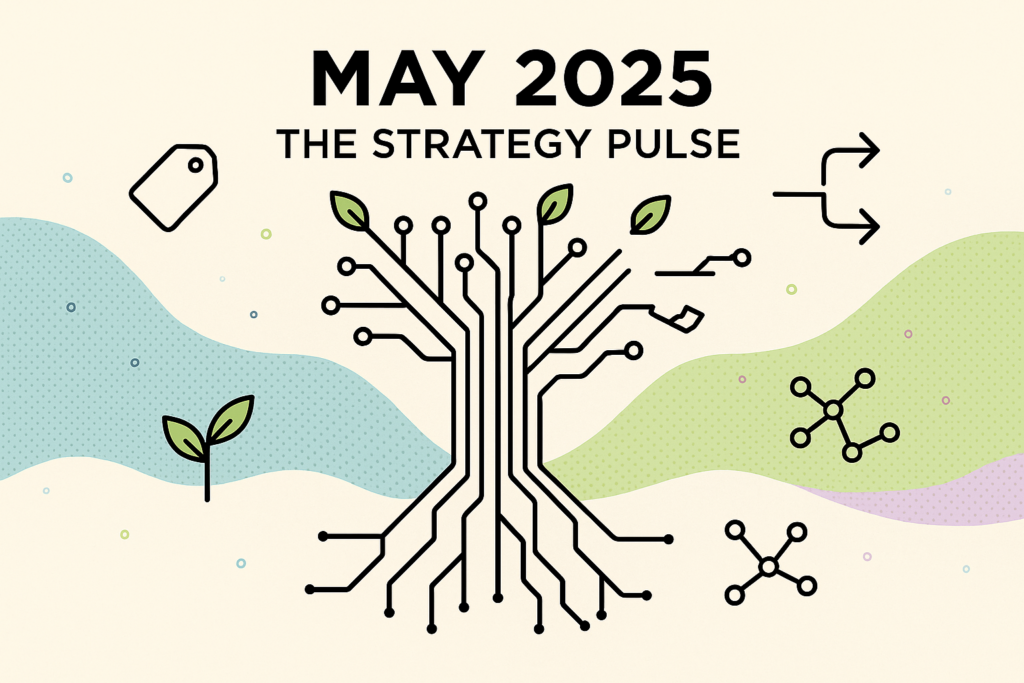
Data Digest #2: Smart Goggles and Crystal Balls
Data Digest #2: Smart Goggles and Crystal Balls
August 25, 2022

The cogs of the data world are perpetually turning. Data never sleeps. Brace yourself for an exciting overview into some of the top data news stories that have been gracing our screens over the past month.
The Guardian: Chinese access to UK genetic data
For many years now, medical researchers across the globe have been sharing their findings across borders in an open-access policy that aims to promote international medical cooperation. As progressive and forward-thinking as this may sound in theory, in practice, there is a potentially menacing downside to this system. It depends upon the goodwill of the medical researchers and professionals accessing the data. What happens when this sensitive health information falls into the wrong hands?
Concern has been brewing amongst the UK medical community about Chinese access to UK genetic data. A review is currently underway into the security risks that Chinese access to potentially sensitive information may pose. The UK Biobank is a biomedical database that houses the DNA information of half a million UK citizens, and as it stands, Chinese researchers currently have access to health data on about 300 projects. Political relations between China and the West have grown increasingly frosty in recent years, and this has given rise to scepticism with regards to the current framework that allows such unhindered access to potentially sensitive information. There are concerns due to the difficulty of monitoring just how this health data is being used. It’s also been noted that Chinese researchers don’t give as much data as they take, due to being limited by the Chinese government’s stricter data privacy laws.
We’re posed with a moral dilemma – with MI5 and the FBI warning against all-out data-sharing – that seems difficult to resolve. Do scientists have a duty to share everything in the name of science, or does the political landscape need to be taken into consideration?
The Guardian, Fears Over China’s Access to Genetic Data of UK Citizens
BBC: Will driverless cars ever be safe enough?
Kicking your feet up, reclining back and tuning into your favourite movie…whilst driving?! What once seemed like a distant fantasy fit for an episode of Futurama seems to be on the verge of becoming a reality. That’s right: driverless cars are happening.
Whilst they’re yet to grace UK roads, it’s only a matter of time before self-driving vehicles are given the green light. According to the government, the first of their kind could be making an appearance on UK roads by 2025. Indeed, some vehicles with self-driving properties could be seen on motorways as soon as next year, according to the department of transport.
However, the implementation of this new technology won’t be plain-sailing. A number of moral dilemmas rear their heads upon deeper consideration. According to a recent report by the Centre for Data Ethics and Innovation, there’s no way to determine how safe driverless cars need to be in order to be considered ‘acceptable’ for UK roads. It’s not simply a question of science; no matter how safe and secure the technology may be, UK citizens sharing the roads with these vehicles may simply never be comfortable with the notion of driving alongside driverless cars. Fellow drivers are unlikely to be sympathetic or understanding should a driverless car be involved in car crashes or other accidents. Another issue comes to the fore regarding the development and trialling of driverless cars before they become legalised: how do you obtain the consent of drivers on public roads who may be unwittingly participating in their trials? It’s a complex dilemma that warrants further exploration. Don’t get to excited about popping on the telly whilst behind the wheel just yet.
BBC, Driverless Cars: Experts Warn No Easy Answer to How Safe They Should Be
Forbes: Data ‘crystal balls’ for renewable energy
Renewable energy is the future. It’s an inevitable necessity for our planet. But our society has depended for centuries upon unsustainable fossil fuels, and changing this will require a massive overhaul. How do grid operators adapt to the change in supply and demand of low-carbon energy sources? How do they make sure that the implementation of renewable energy is cost-efficient?
Enter optimisation tools. AI and machine learning technology could prove to be vital as society collectively seeks to switch to renewable energy. These technologies can help to manage energy grids and foresee how to provide the right supply of electricity when it’s needed.
One company that has been at the forefront of these developments is Energy Exemplar. They have created an energy simulation model called Plexos which uses AI to predict how energy grids should function efficiently depending on their own unique circumstances. According to the company’s CEO David Wilson, there are over 400 variables that can have an impact upon the performance of a gas power plant; it’s Plexos’s job as an optimisation tool to take all of these into consideration in order to cultivate a model on how to run said plant most efficiently.
Wilson states that a nationwide implementation of renewable energy will be an incredibly costly undertaking. If it’s going to be done, it needs to be done right. Thus, the appropriate technology needs to take pride of place, front and centre, if it’s going to run smoothly. Wilson believes we should be harnessing the power of Plexos, as it’s a ‘crystal ball for energy markets’. The UK National Grid has signed an agreement to use Plexos for the next three years to support the gradual roll-out of renewable energy across the country.
Forbes, How Data ‘Crystal Balls’ are Helping Energy Markets Transition to Renewables
The New York Times: Tesla data and car crashes
A number of recent car incidents involving Tesla vehicles have revealed something interesting and potentially ground-breaking. Tesla cars can capture frame-by-frame playback of the incident, revealing the behaviour of the driver as well as the actions of other vehicles on the road. They’re also able to harness statistics about the vehicle’s situation at that exact moment. Whilst Tesla typically uses this data to inform future manufacturing and optimise efficiency as well as health and safety for the vehicle itself, it’s now being tapped into in extraordinary ways.
Long gone are the days of ‘it’s my word versus yours’. We have a new witness in town: the vehicle being driven at the moment of impact itself. Organisations such as police departments and insurance companies are keen to access the visual and statistical data from Teslas (and certain other car manufacturers who provide such data) in order to build a clearer picture of certain car accidents and incidents to inform their responses appropriately.
However, there’s some stumbling blocks that arise when it comes to accessing this data. Mike Nelson is the founder of QuantivRisk, a start-up dedicated to amassing data from car manufacturers and selling it to interested parties, such as the police. However, this depends on the goodwill of the car owners; due to Tesla’s policies, data can only be accessed through gaining permission from the driver themselves.
The New York Times, Can Tesla Data Help Us Understand Car Crashes?
The Telegraph: NHS ‘smart goggles’
NHS nurses are currently reported to spend over half of their time on admin work. Every minute of a nurse’s time is valuable, and so a new technology has been developed specifically with the aim of freeing them from the burden of boundless paperwork. A £400,000 pilot project of the technology is set to begin in the UK. The so-called ‘smart goggles’ are virtual reality headsets that have the ability to transcribe details and information hands-free. This technology can also record footage live, so that questions can be posed directly to health specialists in an instant, without the need of booking extra appointments and prolonging the process.
The software built into the glasses is known as A.Consult, and is the brainchild of the company Consult Health. These ‘smart goggles’ could dramatically change the patient and nurse experience: with more time to spare, nurses would have the opportunity to spend more time being hands-on with patients, to perform tasks such as taking their vitals and tending to their needs more freely. The Northern Lincolnshire and Goole NHS Foundation Trust are set to be the first to trial the exciting new technology.
The Telegraph, NHS Trialling ‘Smart Goggles’ So Nurses Can See More Patients

